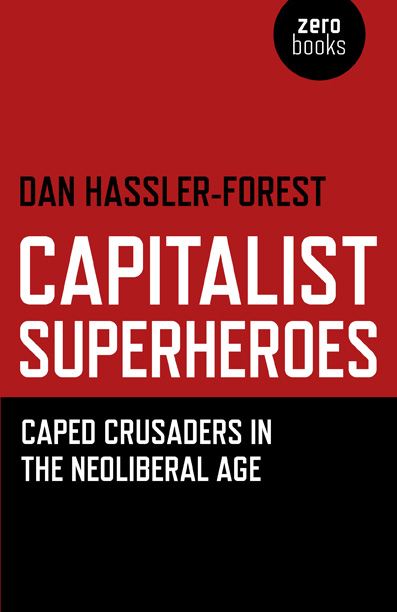Capitalist Superheroes
The blockbuster superhero movie: popular entertainment or capitalist propaganda? This book investigates the 21st-century superhero's underlying political agenda.

The blockbuster superhero movie: popular entertainment or capitalist propaganda? This book investigates the 21st-century superhero's underlying political agenda.
The blockbuster superhero movie: popular entertainment or capitalist propaganda? This book investigates the 21st-century superhero's underlying political agenda.
Comics & graphic novels, History & criticism, Semiotics & theory
In the same way that Stallone and Schwarzenegger played film heroes who came to embody the values of Ronald Reagans aggressive conservative agenda in the 1980s, the 21st-century film narratives of Batman, Spider-Man and Superman reflect the policies of the Bush Doctrine after 9/11. This book offers a groundbreaking study of the relationship that exists between post-9/11 American politics and the contemporary superhero movie phenomenon. No other Hollywood subgenre was as consistently popular during the George W. Bush presidency, as films such as Spider-Man, Superman Returns, Iron Man, and The Dark Knight embodied the key contradictions that inform the cultural and political life of the post-9/11 years. By combining in-depth analyses of numerous major superhero films from this era with astute readings of contemporary critical theory, this book offers accessible and academically potent insight into the complex interplay between politics, ideology, and entertainment in the 21st century.
Click on the circles below to see more reviews
Just read this excellent book which echoes my mind-set in Marshal Law. Law was always more than a satire on men in capes, it is also a critique on the fortresses of the establishment – hence the hero hunter’s attack on the US corporations trading with the enemy in World War 2 and the role of the US in Vietnam. So it was good to see this book once again delineate how these costumed crusaders have a questionable and unwholesome role in society. They are so much more than a harmless power fantasy designed for our entertainment: in reality a disguise and an endorsement for much that is wrong on our planet, which is why I/Marshal Law loathe them. I explore this further in the afterword to the Marshal Law deluxe edition due out this April, but in the meantime here are a few gems from Capitalist Superheroes: ~ Pat Mills, Creator and first editor of 2000AD, champion of girls' and political comics, co-creator of Requiem Vampire Knight, Marshal Law, Accident Man, Nemesis and many more.
Capitalist Superheroes peels back the glamorous façade and shows us what fantasy characters like Batman, Superman and Iron Man truly are: the horrific embodiments of neoliberal capitalism. By making us sympathize with powerful but all-too-human billionaires, these films legitimize the power of the Berlusconis and Rupert Murdochs of the world. Dan Hassler-Forest strips down the superhero fantasy to show us that this new emperor is wearing no clothes - or rather: that what is hidden behind the superhero's colorful costume is in fact the true power of Capital. ~ Slavoj Žižek , philosopher
This brilliant and lively book shows that the superhero films so familiar to us as Hollywood blockbusters are by no means just innocent entertainment; on the contrary, they engage, in quite malign ways, some of the fundamental political and socio-economic issues of our time. Superheroes of one sort or another are as old as literature itself, but no one has done more than Dan Hassler-Forest to help us understand the pre-eminent modern versions of the type: Superman, Batman, Spider-Man, and the like. Though his book will immediately find readers among everyone with a particular interest in superhero film and fiction, it deserves a much wider audience as well. ~ Carl Freedman, Professor of literature and author of The Age of Nixon(Zero Books 2012)
Stylish, perceptive, and engaging, Hassler-Forest's Capitalist Superheroes reminds us that even in the glimmer and glow of new technologies and special effects, movies are still permeated with politics and ideologies. ~ Timothy Corrigan